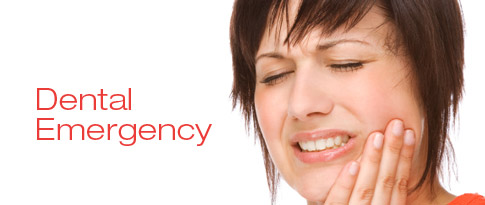
Rapid Response: Emergency Dental Care Solutions
Dental emergencies can strike unexpectedly, causing pain and distress. Understanding the importance of prompt care and knowing what to do in such situations is crucial for maintaining oral health. Explore the realm of emergency dental care and discover solutions for rapid response.
Recognizing Dental Emergencies
Emergency dental care begins with recognizing situations that require immediate attention. Severe toothaches, knocked-out teeth, broken or chipped teeth, and injuries to the soft tissues of the mouth are all considered dental emergencies. Knowing when to seek immediate care can make a significant difference in the outcome.
Immediate Actions for Common Emergencies
In the midst of a dental emergency, taking immediate actions can help alleviate pain and prevent further damage. For a knocked-out tooth, try to reinsert it into the socket gently. If that’s not possible, store it in milk or saliva and seek dental care promptly. Rinse the mouth with warm water for toothaches and use a cold compress for swelling.
Contacting an Emergency Dentist
In cases of dental emergencies, time is of the essence. Contacting an emergency dentist is crucial for receiving prompt and specialized care. Many dental offices have emergency slots in their schedules to accommodate urgent cases. Provide detailed information about the situation when calling, and follow any instructions given by the dental staff.
Managing Broken or Chipped Teeth
Accidents happen, and teeth may get chipped or broken. In emergency dental care, managing these situations involves saving any broken pieces, rinsing the mouth with warm water, and applying a cold compress to reduce swelling. Seeking professional dental care immediately ensures proper assessment and necessary repairs.
Toothaches: Causes and Relief
Toothaches can be debilitating, often signaling an underlying issue. In emergency dental care, managing toothaches involves avoiding hot or cold foods, using a numbing gel for temporary relief, and taking over-the-counter pain relievers. However, it is crucial to consult with a dentist to address the root cause of the pain.
Dealing with Soft Tissue Injuries
Injuries to the soft tissues of the mouth, including the lips, cheeks, and tongue, require careful attention. In emergency dental care, gently clean the injured area with water and apply pressure to control bleeding. If bleeding persists or the injury is severe, seek immediate dental care or visit the emergency room.
Preventing Dental Emergencies
While knowing how to respond to dental emergencies is vital, preventing them is equally important. Regular dental check-ups, maintaining good oral hygiene, using protective gear during sports, and avoiding chewing on hard objects can significantly reduce the risk of dental emergencies.
Emergency Dental Care at Home
In some situations, immediate access to a dentist may be challenging. Home care can provide temporary relief. Over-the-counter dental cement can be used to temporarily secure a loose crown or filling. However, this is not a substitute for professional dental care, and seeing a dentist as soon as possible is crucial.
Planning for Future Emergencies
Being prepared for dental emergencies is part of responsible oral health care. Assemble a dental emergency kit with items like gauze, a small container with a lid, pain relievers, and the contact information for your emergency dentist. Having these essentials readily available can make a significant difference in handling unforeseen situations.
Explore Emergency Dental Care Solutions
For more in-depth information and guidance on emergency dental care, visit Emergency Dental Care. Learn about common dental emergencies, first-aid tips, and how to access prompt professional care. Being informed and prepared can help you navigate dental emergencies with confidence and care.
In conclusion, understanding emergency dental care and having a plan in place can make a crucial difference in addressing unexpected oral health challenges. By recognizing emergencies, taking immediate actions, and seeking professional care, individuals can safeguard their smiles and overall oral well-being.
